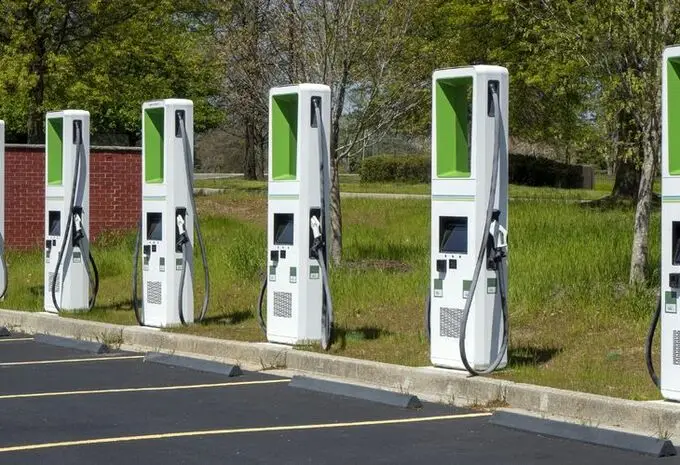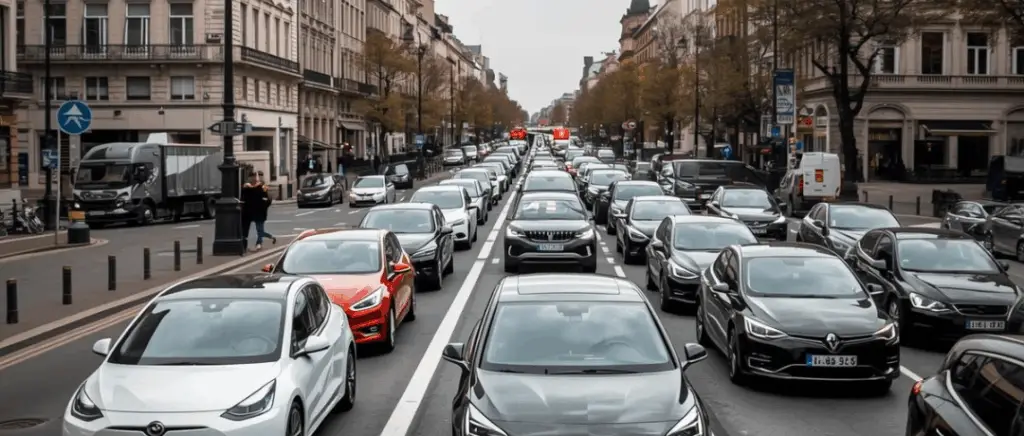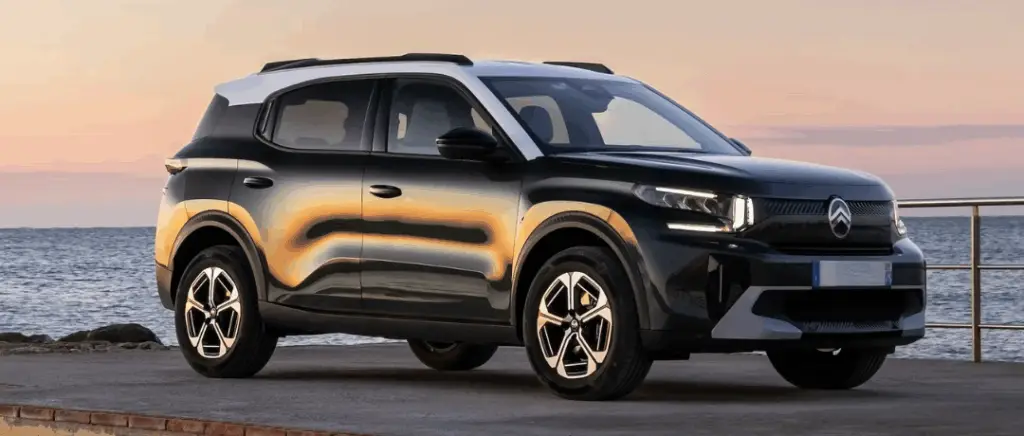Our experts answer your questions with a smile
Monday to Friday 9am - 12.30pm - 2pm - 7pm
In the Netherlands, kiosks installed in front of your home
Since 2009, residents of Amsterdam have been able to apply online to have an electric vehicle charging point installed near their home. The ambition of the city authorities is to develop electric mobility and enable the residents of Amsterdam to use their electric vehicle with peace of mind. This is the result of a trial with 100 charging points in 2009. Following satisfactory results, the network grew rapidly, reaching 1,000 charging points in 2011. Today, Amsterdam has more than 3,800 charging points for electric vehicles, and the model has been adopted by other cities throughout the Netherlands.

The project has been a resounding success, enabling many Amsterdam residents to embrace electric mobility. The city has also set a clear target of banning all vehicles except the 100% electric cars by 2030. In Amsterdam, the process for applying for a new charging point is very simple: all you need to do is meet these 3 criteria:
- If you live or work in Amsterdam
- You own a 100% electric car or a Plug-in Hybrid capable of reaching 60 km/h in all-electric mode.
- You are unable to park on your property
The city also has a partnership with an energy production and distribution company for the installation of the charging points. Following a request from an Amsterdam resident, the feasibility of the project was studied. According to the Vattenfall There are 6 stages to a terminal request.
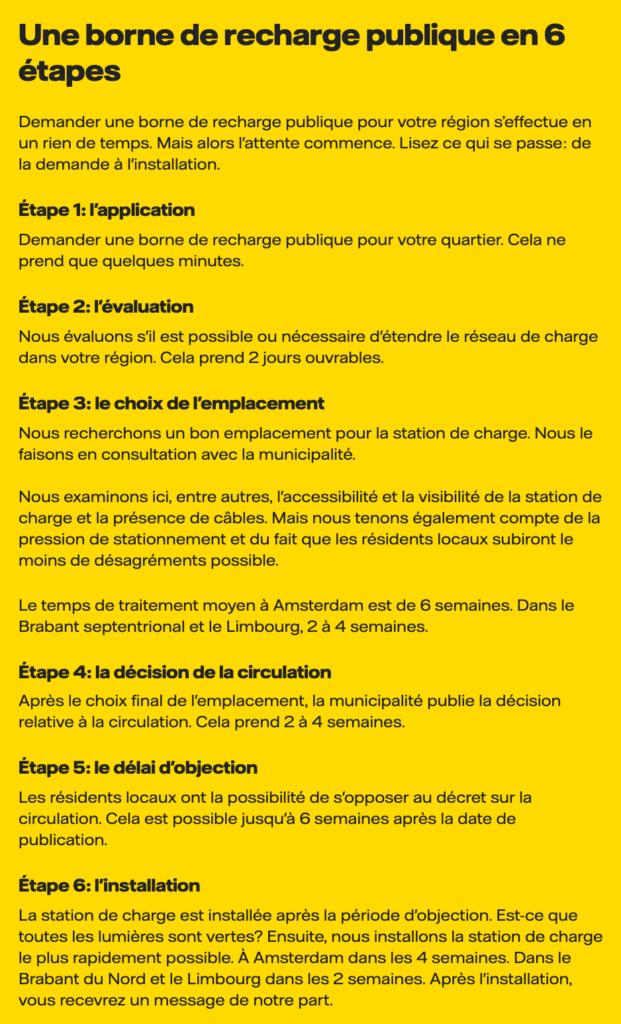
In Norway, filling stations are replacing petrol pumps
In Oslo, Circle K, one of the largest fuel distributors, has replaced petrol pumps with charging points for electric vehicles. The Circle K petrol station in Place KiellandsThe operation was carried out at Circle K, located in the north-west of the city on one of the capital's main roads. For Circle K, the products with the greatest added value are not petrol or diesel, but ancillary services such as a mini-market or a car wash. Electric vehicles are therefore a godsend for this local shop manager, requiring on average 20 to 30 minutes to recharge.
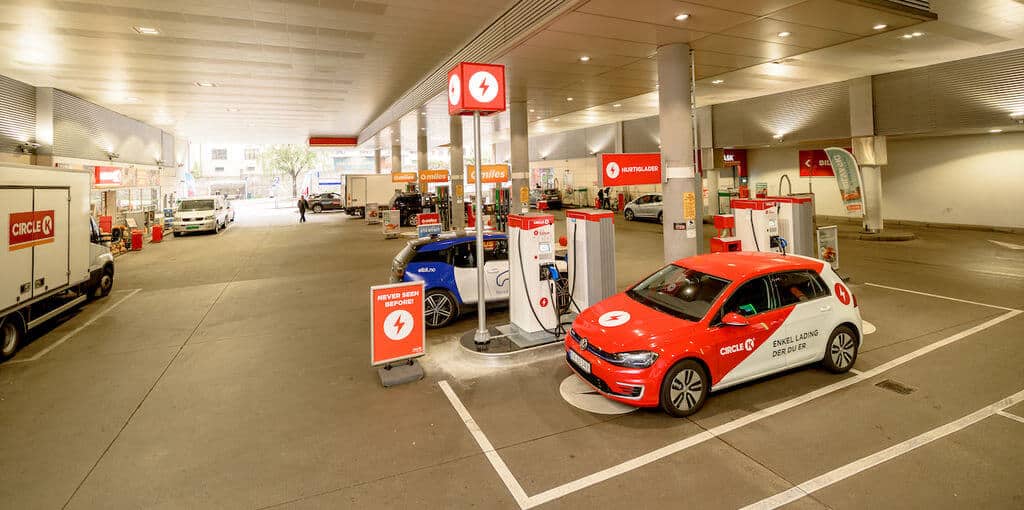
We've never done this before. There's a fierce battle for every square metre in the petrol stations, and the petrol pumps [...] still bring most of our customers to our stations.'' - Sverre Rosén.
Norway, however, is a rather exceptional case. With more than 50 % market share, electric vehicles are the preferred choice for Norwegians. This country of just over 5 million inhabitants already has more electric vehicles than France, with over 200,000 electric cars and more than 100,000 additional Plug-In Hybrids already in use in 2018.
The popularity of electric vehicles is such that we're beginning to see the emergence of a new type of vehicle. decline in the country's petrol and diesel consumption.
When our customers' needs change, we have to change too. We have launched a complete development of fast chargers [...]. Our ambition is to offer the best charging experience [...]. We are doing this with our own chargers and in partnership with IONITY, Tesla and Grønn Kontaktsays Håkon Stiksrud, Director of Electric Mobility at Circle K.
If you would like to find out more aboutsupport for the installation of charging points for private customers in 2024For more information, see our article on this subject.
